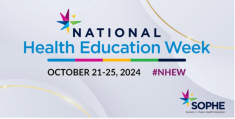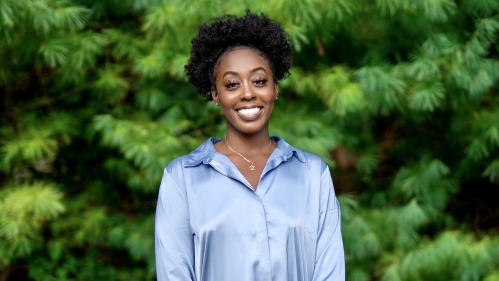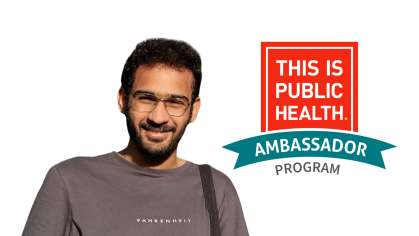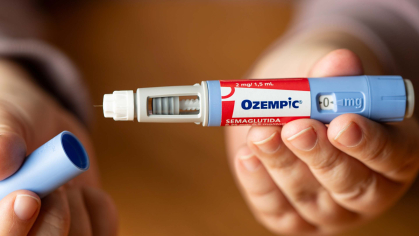October 21 through October 25 is the Society for Public Health Education’s (SOPHE’s) National Health Education Week (NHEW). Since 1995, SOPHE has led this annual observance to increase awareness of timely public health issues and promote a better understanding of the role of health education and promotion. Rutgers School of Public Health is contributing to this vital endeavor by sharing the experiences and expertise of our community members.

We are observing NHEW’s theme, Environmental Wellness: Health in the Age of Climate Change, continuing our series highlighting the 2024–2025 Wellness PHirst Ambassadors!
The Wellness PHirst Ambassadors are Rutgers School of Public Health student leaders who mentor their peers, promote wellness resources, and co-facilitate programs designed to enhance student engagement and support. This diverse group is dedicated to helping fellow students navigate the Dimensions of Wellness: cultural, social, occupational, intellectual, creative, physical, spiritual, financial, emotional, and environmental.
In our last feature, we introduced Rihi, sharing her passion for improving the lives of medically underserved populations.
For our next spotlight, we sat down with Fatima Niangado, a Master of Public Health (MPH) student with a concentration in Global Public Health, to discuss her public health journey, the impact of environmental health, and the significance of promoting and leading with wellness PHirst.
Why did you decide to pursue a degree and career in public health?
My curiosity about science and health started when I was nine. My dad and I were on our way home from school when I told him I’d find the cure for cancer once we got home by doing research online. My dad laughed and told me I would have to become a doctor to do that.
Fast forward, after receiving my bachelor’s in Cell and Molecular Biology, I decided to take a break before continuing to attend medical school. That break led me to the Rutgers School of Public Health, and it has been the best decision I could make for my career.

What is the significance of environmental wellness and its impact on public health?
I always thought health was the only factor contributing to wellness, but our environment is also important. The air that we breathe can impact our health in many ways.
Fine particulate matter, known as PM2.5 particles, pollutes our air from burning wood, vehicle exhaust, and even simple things such as burning a candle. This may affect our health by increasing respiratory issues, heart diseases, cancer, and other diseases. Being mindful and cautious of our impact on our environment will only boost wellness at the community and population levels.
Why did you decide to apply to be a Wellness PHirst Ambassador? How do you plan on connecting with your peers through this role?
I became a Wellness PHirst Ambassador because I love talking and connecting with my peers, especially regarding health and wellness. Additionally, I regret not being involved on campus during my undergraduate years, so this was the perfect opportunity to redeem myself.
I knew this role would push me out of my comfort zone, allow me to work on my health communication skills, and enhance my leadership abilities. I plan to connect with my peers through the program and activities that will be organized throughout the semester. Promoting the wellness points through the Wellness PHirst program will be a great way to excite my peers to participate.
What are your interests outside of public health?
Outside school, I love traveling, hiking, and trying new food. I also love indulging in self-help books when I have the time.



